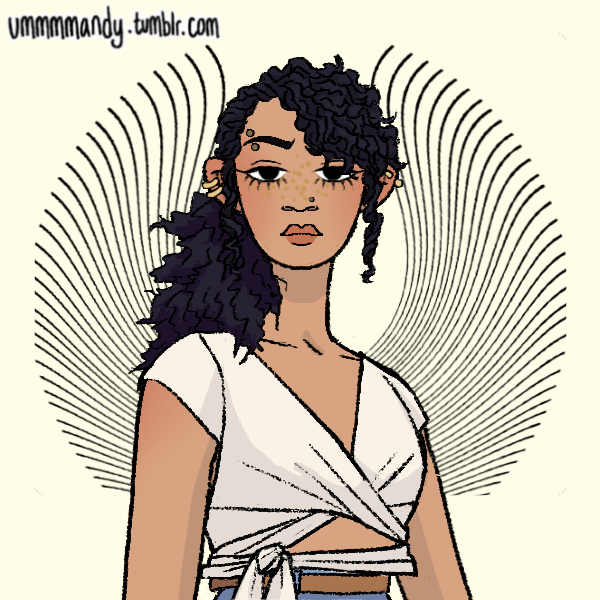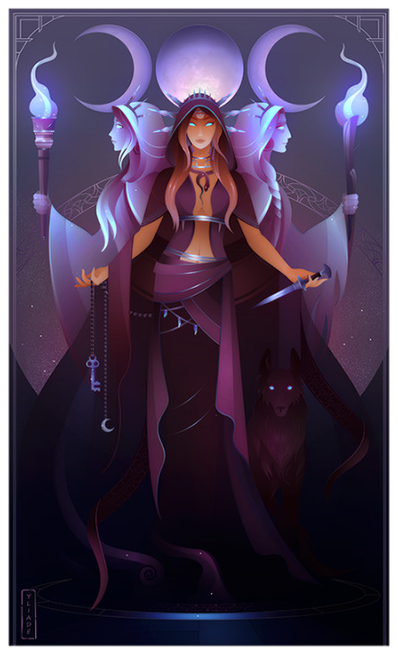Over the Hedge
|
The porridge Nan had made for breakfast was warm and comforting, and I didn’t realize how hungry I was until it was in front of me. I had two bowls before I was finally able to relax and talk, with Sergei and Nan patiently waiting. I started telling them what I saw, and they were very excited to hear about my brief stop at my wedding. Sergei asked when it was, so they could plan a vacation, but I didn’t actually know. But when I got to the part about The Two, they both went silent and listened intently.
“So she put the thread in your eye?” Nan asked. “Is that what the new gold flecks are?” “Seems so.” “And it isn’t going away?” Sergei asked. “I saw the same flecks in the eye of every future version of myself I’ve met.” “But nothing more,” Nan pressed, “this isn’t becoming a habit, you doing things to your eyes?” I chuckled. “As far as I can tell, this is it.” “If things do not change,” Sergei said, wagging his finger. “I don’t think they can change.” “Of course they can! Time is not stone, it moves. It changes! It can change.” “We’re talking about fate, dear,” Nan said, resting a hand on his knee. “Pft. Fate. Is nice word, but time changes.” She rolled her eyes. “The Two said they’d seen it all before!” “And they said they had to keep things same. Which,” he held his hands out and shrugged, “is chance for it to not stay same.” “I think I’m going to try and stick to the script, if you don’t mind,” I said, setting the bowl down and picking up my drink. “But you choose that. This is what matters,” he said, turning to Nan, “is that she chooses.” “Of course, dear.” She patted his knee and then turned her attention back to me. “But you didn’t get the answers you were looking for?” “I got some,” I said, “and I suspect, over time, I’ll realize that I got more than I know. But I couldn’t have gotten anywhere without your help. Both of you.” “Well, we’re not done.” Nan walked to the other side of the room, grabbing some papers off a shelf. “Sergei had some more detailed theories for you, but had to write them in Russian. I translated them for you.” I flicked through and found pages detailing various forms Sergei believed Hecate had taken over the years, beginning with… “Is this Atlantis?” I asked. Sergei nodded enthusiastically, and Nan sighed. “Yes. It’s a pet idea of his. You can do what you want with the ideas. They’re theories—” “Correct theories,” Sergei added. “—that you can take, and decide for yourself how useful they are.” “Thank you,” I said. “But shouldn’t the store be open by now?” “Is time,” Sergei said, waving the question off, “it changes.”
0 Comments
24 January 2007
When my eyes opened, I was facing the ceiling and the sky; both of them, juxtaposed over each other. I felt the couch under me, but as I looked around everything was a blur of motion. The walls were being built, they were built, they were being destroyed. Nan, Sergei, and a few dozen other people I didn’t recognize were everywhere, all occupying the same space, but drifting through and past one another in perpetual motion. They aged and resumed their youth, they left and never returned while they entered for the first time. I stood and stumbled across a floor that was there on one step and gone the next, the carpet shifting and changing, the structure built or missing, everything in flux, everything changing around me. I grabbed my head and felt my hair growing as I tried to soothe the ache. I tripped over something—it was impossible to know what, with so much furniture coming and going—and crashed hard onto the floor. I felt a hand on my back, warm but fleeting, and a cacophony of voices overwhelmed me. I rose to my knees and screamed, the pain in my head growing more sharp and everything breaking down around me.
Then I felt something pulling at me. From every direction, a total of eight points of tension pulled at me, holding me in place. My surroundings began to slow and meld, stabilizing ever so slightly. I looked around, trying to make it out, and saw the lines leading away from me, each to a person. There was Matt, and Jacob, and the six other people who took part in the ritual in their apartment. All around me, they were keeping me in place, fighting against the pull I was still wrapped in. I closed my eyes and focused, chanting. I remembered the shard in my pocket and grabbed it, pulling it out of my pocket and holding it with both hands. I narrowed my mind on it, then held it up and looked through it. In the lens I could see Nan and Sergei’s apartment, stable and unmoving, with Nan kneeling in front of me and trying to soothe me. I tried to block out everything else. I tried to remind myself of what was important. I have the magic to do this. I have Nan and Sergei waiting for me and trying to pull me back. I have friends helping me, supporting me, holding back as much of this chaos as they can. I have people back home who need me, people I want to see again, people I will see again. I am never alone. My breathing slowed into a steady rhythm and my vision began to close in, as if a tunnel was slowly absorbing everything else. I saw where I needed to go. I knew how to get there. I closed my eyes, whispered one more incantation, and shattered the shard in my hand. I heard glass breaking everywhere around me, the visions shattering and falling away. The cacophony ended. The feeling of being pulled stopped. I opened my eyes and looked directly into Nan’s. She smiled. “I was afraid we were losing you,” she said, running her hand through my hair. I reached up and rested my hand on her wrist. “I would never.” She pulled me in for a hug, and I didn’t fight it. The First City, According to Sergei
|

Image courtesy of ummmmandy's picrew.
AuthorThe blog of Jackie Veracruz. Boost on TopWebFictionTall Tales: Volume Two now available
Archives
September 2022
Categories
All
|
Story Blogs |
Resources |

 RSS Feed
RSS Feed